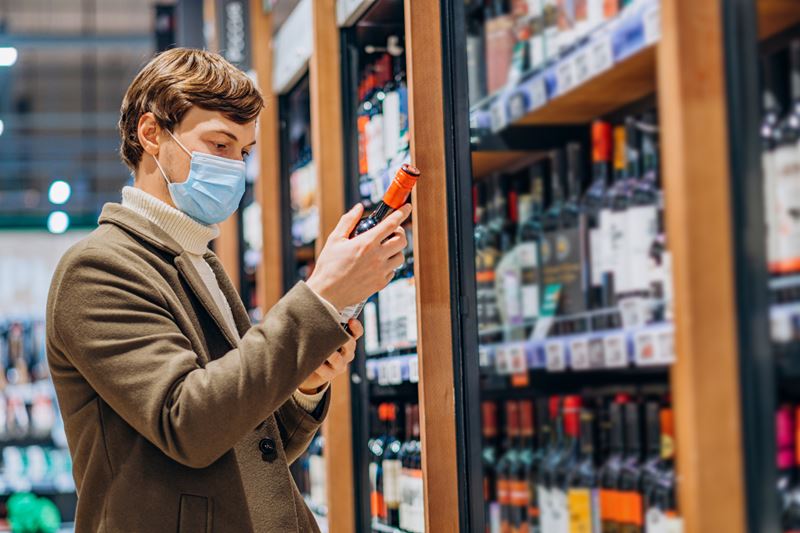How Long COVID Alters Wine Enjoyment
New research reveals a bitter twist for wine lovers in the age of COVID-19
2024-04-02

For wine aficionados, the nuances of aroma, taste, and the overall experience of enjoying a good bottle can be one of life's greatest pleasures. But what happens when an unforeseen health challenge alters this enjoyment? Amidst the lingering shadows of the COVID-19 pandemic, a peculiar phenomenon has emerged, impacting how some wine lovers interact with their cherished bottles. It appears that long COVID, a perplexing and persistent condition following a COVID-19 infection, may be subtly changing the rules of engagement with alcohol.
Long COVID, also known as post-acute sequelae of SARS-CoV-2 infection, encapsulates a range of symptoms that persist well beyond the initial recovery period from COVID-19. For some, these symptoms stretch out for months, manifesting as fatigue, headaches, and an array of other health issues. Among these varied symptoms, an increased sensitivity to alcohol has emerged, an aspect that, until recently, had received little attention in the medical community. However, a study conducted by researchers at Stanford Health Care and published in the journal Cureus sheds light on this phenomenon, suggesting that long COVID can dramatically decrease some individuals' ability to tolerate alcohol.
The study, albeit small, highlights the stories of four individuals whose post-COVID life includes an altered relationship with alcohol. One participant, previously accustomed to enjoying alcohol without adverse effects, now finds himself grappling with chronic headaches triggered by drinking. Another participant, who used to engage in social drinking, now experiences flushing and headaches with similar alcohol consumption. These stories underscore a drastic change for some: what was once a source of relaxation and enjoyment now becomes a trigger for discomfort.
Why does long COVID lead to this increased alcohol sensitivity? The exact mechanisms remain elusive. One theory suggests that alcohol exacerbates orthostatic intolerance, a condition linked to long COVID, which involves inadequate blood flow upon standing or sitting up. Alcohol's propensity to dilate blood vessels and act as a diuretic might worsen this condition, amplifying symptoms. Another possibility involves the disruption of the gut microbiome, a scenario observed in both long COVID and alcohol consumption, potentially leading to increased inflammation and aggravated symptoms.
For those affected, the path forward involves a cautious approach to alcohol. Recommendations include complete abstinence, avoiding specific triggers, or experimenting with antihistamines to mitigate reactions. However, given the individual variability in responses and the lack of a clear understanding of the underlying causes, these are but temporary solutions. Healthcare professionals like Dr. Linda Geng, a clinical associate professor at Stanford and one of the study's authors, advise those experiencing new alcohol sensitivity to consult with their doctor and consider abstaining from alcohol until further guidance is provided.
This initial foray into understanding the link between long COVID and alcohol sensitivity opens the door to many questions. The limited scope of the study, focusing on a small group with specific demographic characteristics, underscores the need for more comprehensive research. Only through larger-scale studies can we hope to unravel the complexities of long COVID's impact on alcohol sensitivity and find pathways to restore the full enjoyment of wine for those affected.
As the world continues to navigate the aftermath of the COVID-19 pandemic, the stories of those dealing with long COVID remind us of the virus's lingering effects on all aspects of life, including the simple pleasure of enjoying a glass of wine. With continued research and awareness, there's hope for effective strategies to overcome these challenges, allowing everyone to once again savor the rich experiences wine has to offer.
Founded in 2007, Vinetur® is a registered trademark of VGSC S.L. with a long history in the wine industry.
VGSC, S.L. with VAT number B70255591 is a spanish company legally registered in the Commercial Register of the city of Santiago de Compostela, with registration number: Bulletin 181, Reference 356049 in Volume 13, Page 107, Section 6, Sheet 45028, Entry 2.
Email: [email protected]
Headquarters and offices located in Vilagarcia de Arousa, Spain.